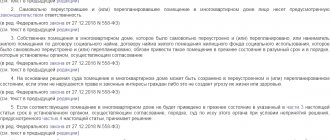Very often people come to us with the question of what to do when they have built a garage box or a garage, and currently there are no documents on what to do, because it is now impossible to sell the property, just as it is impossible to legally rent it out or dispose of it in any other way...
Our lawyer in civil cases recommends contacting us for a consultation, during which we will study all the documents you have, give advice on requesting and obtaining the missing ones, then help you draw up a statement of claim in court, and also enter into an agreement on the provision of legal services for the representation of interests You in court.
USEFUL : watch the VIDEO with advice from a lawyer on how to legalize self-construction through the court, and also write your question in the comments of the video
When may it be necessary to register ownership of a garage through the court?
Citizens can resort to the procedure for registering ownership of a garage in the following cases:
- If there are disputes over inherited property.
- If there are no title documents for the garage, for example, they were lost, but you can prove the rights.
- If there is a division of the joint property of the spouses, which includes a garage.
- When it is necessary to allocate a share of property and register ownership of it.
- When a garage was erected without permission and documentation for it was not received. They may be allowed to register a garage as their property, but only if the citizen has owned the self-built property for more than 15 years.
- Other reasons why it was impossible to register the garage and draw up the relevant documents.
Recognition of a building as unauthorized: demolition of a building or procedure for recognizing ownership rights
Previously, permission to build a garage could be obtained verbally by asking at the housing maintenance office - which is why many garages now have to be registered as property. This is perhaps the most common case when rights to a garage are established.
Free consultation
Attention! Due to recent changes in legislation, the legal information in this article may be out of date! Our lawyer can advise you free of charge - write your question in the form below:
A permanent garage is the same real estate object as a residential building. If it is not registered, then it will be impossible to sell, bequeath or donate it, and it sometimes costs a lot of money
. Registration of property rights is complicated by the fact that many owners do not have the necessary documents.
Due to active urban development, cases of demolition of garage complexes have become more frequent. Therefore, the owners of one, or even several boxes, at GSK are seriously concerned about the issue of how to register a garage as their property. Even if the city needs the territory for development, the legal owners in this case will be paid compensation
. Its size usually covers the cost of purchasing or building another “motorhome” to replace the lost one.
It is also better to put the documents for detached garages in order. During cadastral work, any object is marked on the plan, but from a legal point of view, it is not property, it has no value
. In addition, any discrepancies between factual data and documents may cause refusal to register property rights.
We are, of course, not talking about temporary structures like “shells” and the like. They are easy to drag when a “threat” arises
.
An immovable object is a permanent structure inextricably linked to the land. Registering a garage as a property and the procedure vary depending on where it is built and on what land
. Let's look at three typical situations.
- Construction on a summer cottage, in the courtyard of a private house.
- A separate building on “foreign” (unregistered) land.
- Boxing in a common garage community, cooperative (GSK).
Documents for registration of ownership of a garage
When going to court, a citizen must submit not only a statement of claim, but also other documents proving his rights to the garage.
The documentation package may include:
- An act of conducting an independent examination, if it was carried out by the owner.
- Administrative and other legal acts.
- Certificate from BTI.
- Registration certificate, if available.
- Cadastral passport.
- The act of putting the facility into operation.
- A certificate from the Unified State Register or an old certificate of ownership (it is no longer issued).
- Purchase and sale agreement if a garage was purchased.
- Donation agreement, if the garage was donated.
- An extract from the inheritance file, a certificate of inheritance, if the garage was bequeathed to a citizen.
- Written testimony.
- Former spouses must submit a document confirming the purchase of a garage during marriage on the basis of Article 35 of the RF IC, as well as a certificate of divorce.
The procedure for registering land under a garage in a garage cooperative as property
You can also attach all receipts confirming the plaintiff’s expenses . For example, for paying state fees, for legal services.
The package of documents may also include other papers related to the dispute.
Documents are presented in the form of originals and copies according to the number of defendants, in accordance with Article 132 of the Code of Civil Procedure of the Russian Federation.
How to compose correctly
Write the statement of claim by hand or type it on the computer. In it, describe in detail, with references to articles of the law, the situation and your request to the court. If you are not confident in your abilities, contact a lawyer or first look at the sample that we provide in this article specifically for such cases.
Please attach the following documents to your application:
- a copy of it,
- receipt of payment of state duty,
- BTI technical documentation,
- certificate from the garage cooperative (if any),
- other documents confirming your position.
The procedure for registering ownership of a garage through the court - instructions
In order to register ownership of a garage through a court, you must follow these instructions:
- Start resolving the issue before the trial. The trial procedure cannot be started without a pre-trial resolution of the dispute.
- Contact the district administration at the location of the property if you do not have title documentation. You need to apply for recognition of ownership rights.
- Get a response from the administration.
- In case of refusal, prepare a documentation package.
- Submit a statement of claim and documents to the judicial authorities.
- Pay the state fee. The state tax will be 300 rubles. If the claim is of a property nature, then the duty is calculated individually according to the formula established by law. Contact our lawyers, they will help you calculate the state duty.
- Wait for the scheduled meeting, participate in court proceedings. If no problems arise during the process, the consideration of the case will not be delayed and the claim will be considered within 2 months.
- Get a court decision.
- Contact Rosreestr to prepare title documentation and BTI, if necessary.
Please note : the administration does not always resolve the issue. If you have a dispute with the GSK board, you must submit a statement to the chairman of the board.
Only after an official written refusal will you be able to file a claim in court and seek justice.
It is important to understand that all technical documentation must be completed by the future owner.
Before going to court, the garage owner must:
- Contact the design organization and ask for a technical conclusion on the construction.
- Obtain documents for the land where the garage is built. If the site is ownerless, then the issue should be resolved with the local administration.
- If there is a capital building, it should be registered with the BTI.
If problems arise with paperwork, you can involve a lawyer. He will help you recognize ownership, prepare all the necessary documents, analyze judicial practice and get your hands on a decision on the rights to the garage.
Bibliography
- Determination of the Judicial Collegium for Civil Cases of the Supreme Court of the Russian Federation dated April 21, 2015 No. 20-KG15-3 // ATP “ConsultantPlus”.
- Ruling of the Supreme Court of the Russian Federation dated June 29, 2010 No. 5-B10-22 // SPS “ConsultantPlus”.
- Appeal ruling of the Supreme Court of the Republic of Mordovia dated September 13, 2012 in case No. 33-1529/57 // ATP “ConsultantPlus”; decision of the Oktyabrsky District Court of Saransk dated May 23, 2013 in case No. 2-949/2013. URL: https://www.concern-amiel.ru/uslugi/sudebnaya-praktika/72-priznali-v-sudebnom-poryadke-pravo-sobstvennosti-na-samovolnoe-stroenie-boks-garazha; Decision of the Oktyabrsky District Court of Saransk dated January 16, 2014 in case No. 2-146/2014. URL: https://www.gcourts.ru/case/21447610.
- Decision of the Gelendzhik City Court of the Krasnodar Territory dated April 21, 2021 in case No. 2-893/2017 // Access mode: https://sudact.ru/regular/doc/5Vp TJsirOfQb/ (date of access: 12/12/2018)
Is it possible to register ownership of an unauthorized garage?
A self-construction building in the form of a garage can be registered as a property.
There are two ways to do this:
Method 1. Through the city commission for the suppression of unauthorized buildings.
Method 2. Through the court.
An application should be submitted to the first instance with a request to preserve the garage, and to the second - a statement of claim for recognition of ownership rights to the unauthorized building.
In any case, the citizen’s actions must prove that the garage was built by him.
In addition, you should:
- Provide an agreement on contract work, a purchase and sale agreement, etc.
- Receive an extract from the Unified State Register.
- Issue a technical passport.
- Obtain a certificate from the relevant authorities regarding compliance with sanitary and fire safety standards and requirements.
All of the above documents will be useful.
Important: If a garage is built on a plot of land that, according to its intended purpose, cannot be used for construction, then it will not be possible to register rights to the building without changing the intended purpose of the plot.
Try to discuss this nuance with the administration.
SOLUTION
In the name of the Russian Federation
April 27, 2015
Ostankino District Court of Moscow, composed of presiding judge Shokurova JI.B.,
with the secretary of the court session Potapov D.A.,
having considered in open court in the courtroom civil case No. 2-1571/15 on the claim of P.A.V. to the Prefecture of the North-East Administrative District of Moscow, the Department of City Property of the City of Moscow for recognition of ownership of a permanent garage box,
INSTALLED:
The plaintiff filed a lawsuit to recognize his ownership of permanent garage box No. 10, with a total area of 20.3 sq.m., located at the address: Moscow, street <...>, justifying his claims by the fact that this building was erected in 1965 by the plaintiff’s father, P.V.N., who died on June 21, 1991. After the death of his father, the plaintiff accepted the inheritance and executed a short-term lease of land in his name, however, due to the lack of a title document, he cannot register ownership of the garage box (case sheet 3-7).
At the court hearing on April 27, 2015, the plaintiff clarified his claims and also asked to recover from the Prefecture of the North-Eastern Administrative District of the city of Moscow and the Department of City Property of the city of Moscow in his favor, jointly and severally, the amount of expenses for paying for the services of experts and issuing an expert report on the degree of capital of the disputed garage box in the amount 22,000 rubles.
Plaintiff P.A.V. appeared at the court hearing, supported the specified claims, and asked to satisfy them.
The plaintiff's representative, by proxy, appeared at the court hearing and supported the claims with clarifications in full.
Representative of the defendant Prefecture of the North-East Administrative District of Moscow, by proxy R.V.S. appeared at the court hearing, objected to the satisfaction of the claims, based on the arguments of written objections.
The representative of the defendant, the Moscow City Property Department, did not appear at the court hearing, was duly notified, and submitted a response to the statement of claim.
The representative of a third party who does not make independent claims regarding the subject of the dispute - the Moscow Office of Rosreestr - did not appear at the court hearing, was duly notified of the time and place of the consideration of the case, and did not submit any objections to the claim, guided by Art. 167 of the Code of Civil Procedure of the Russian Federation, the court considered it possible to consider the case in his absence.
The court, having heard the explanations of the plaintiff, the representative of the plaintiff, the representative of the defendant, having studied the written materials of the case, having examined and read out the materials of the civil case No. 2-2042/06 on the claim of F.A.D. on recognition of property rights, finds the claims to be satisfied in part on the following grounds.
By virtue of Art. 130 of the Civil Code of the Russian Federation, the objects of civil rights are immovable things (real estate): land plots, subsoil plots, isolated water bodies and everything that is firmly connected to the land, that is, objects whose movement without disproportionate damage to their purpose is impossible, including forests , perennial plantings, buildings, structures, unfinished construction objects.
Paragraph 1 of Article 131 of the Civil Code of the Russian Federation provides that the right of ownership and other real rights to immovable things, the limitation of these rights, their emergence, transfer and termination are subject to state registration in the unified state register by the bodies carrying out state registration of rights to real estate and transactions with it. The following are subject to registration: the right of ownership, the right of economic management, the right of operational management, the right of lifelong inheritable possession, the right of permanent use, mortgage, easements, as well as other rights in cases provided for by this Code and other laws.
According to Art. 213 of the Civil Code of the Russian Federation, citizens and legal entities can own any property, with the exception of certain types of property, which, in accordance with the law, cannot belong to citizens or legal entities.
In accordance with the provisions of Part 1 of Art. 218 of the Civil Code of the Russian Federation, the right of ownership of a new thing manufactured or created by a person for himself in compliance with the law and other legal acts is acquired by this person.
This rule of law names two legally significant circumstances as the basis for the emergence of ownership of a newly created thing: the creation of a new thing for oneself and the absence of violations of the law during its creation.
The court found that P.V.N. On 04/19/1965, in the Interdepartmental Commission of the Dzerzhinsky Executive Committee of the city of Moscow (case file 8), and then on 05/20/1965 in the Architectural and Planning Department of the Dzerzhinsky District of the City of Moscow (case sheet 9), permission was received for the construction of a capital garage box in a group of individual garages on the 4th passage of the Academic Campus (ASG).
Subsequently, this address was identified as property 18A on <...> street in the city of Moscow - as follows from the Orders of the Prefecture for the subsequent time (case file 147).
As seen from the case materials, P.V.N. died on June 21, 1991, which is confirmed by a copy of the death certificate (case file 41).
By virtue of paragraph 2 of Art. 1152 of the Civil Code of the Russian Federation, acceptance by the heir of a part of the inheritance means acceptance of the entire inheritance due to him, no matter what it is and no matter where it is located.
Plaintiff P.A.V. after the death of his father, in accordance with the procedure established by law, part of the inherited property was accepted, namely: a GAZ-24 car, manufactured in 1984, a SKIF 81061 trailer, manufactured in 1985, a cash deposit with interest, stored in the Sberbank Branch 7974 of the Babushkinsky district of the mountains . Moscow on account No.<…>, which is confirmed by the submitted copy of the certificate of inheritance, issued on January 3, 1992 (case sheet 43).
Accordingly, the court comes to the conclusion that the plaintiff accepted the entire inheritance due to him, no matter what it was and no matter where it was located.
The court also established that after the death of P.V.N. June 21, 1991, by Order of the Prefect of the North-Eastern Administrative District of Moscow dated January 14, 2004 No. 71, the right to use the erected P.V.N. in an economic way, a capital garage box, was transferred to the plaintiff P.A.V. (case sheet 12-13).
The prefect's order established the plaintiff's obligation to re-register the agreement on the provision of the relevant land plot for temporary use.
On May 28, 1993, the Moscow Land Committee issued the plaintiff a temporary certificate No. 02, confirming the registration of the plaintiff’s use of the land plot for an individual garage.
On January 14, 2004, by order of the prefect of the North-Eastern Administrative District of Moscow No. 71, the plaintiff’s right to use a short-term lease for a period of 5 years was established at the address: Moscow, st. <…> ow. 25A for operating a garage box. The same order of the prefect established the termination of the land lease agreement previously concluded with the plaintiff.
February 20, 2004 between the Moscow Land Committee and P.A.V. a lease agreement No. M-02-509569 was drawn up for a land plot with address landmarks: Moscow, street <…>, vl. 25A. provided for rent for the operation of a garage box.
As established by the court, the mutual rights and obligations of the parties to the lease agreement are fulfilled to the present day.
According to clause 8.3 of the lease agreement dated February 20, 2004, if the tenant continues to use the site after the expiration of the agreement in the absence of objections from the lessor, the agreement is renewed on the same terms for an indefinite period, including the mandatory payment of rent.
Evidence of termination of this lease agreement by the defendants was not presented to the court.
As follows from the evidence presented, the land lease agreement concluded between the Moscow Land Committee (currently the Moscow City Property Department) and the plaintiff is still in effect.
On May 14, 2014, the Main Directorate of the Moscow City Bureau of Technical Inspectorate issued the plaintiff a certificate No. 2685/93 on the identification of the object’s address, confirming the change of address: Moscow city, street <…>, vl. 25A to a new address - Moscow, st. <…>, ow. 18A. Also, the State Unitary Enterprise MosgorBTI issued the plaintiff an extract from the technical passport for the building (structure), located at the address: Moscow, st. <…>, ow. 18A, confirming the construction of the controversial capital garage box in 1965.
As seen from the case materials, plaintiff P.A.V. and his father P.V.N. owned the garage for more than 49 years, during which the local executive authority, in the prescribed manner, could raise the issue of demolition of this building or its seizure, however, such requirements for P.A.V. and P.V.N. was not presented, none of the interested parties challenged the legality of the construction of the garage and his right to this property.
In accordance with paragraph 26 of the Resolution of the Plenum of the Supreme Court of the Russian Federation and the Plenum of the Supreme Arbitration Court of the Russian Federation dated April 29, 2010 No. 10/22, when considering claims for recognition of ownership of an unauthorized building, the court determines whether significant violations of urban planning and building codes and regulations, whether such a building poses a threat to the life and health of citizens. For this purpose, the court, in the absence of the necessary conclusions of the competent authorities or if there is doubt about their reliability, has the right to order an examination according to the rules of procedural legislation.
Unless otherwise established by law, a claim for recognition of ownership of an unauthorized structure is subject to satisfaction when the court determines that the only signs of an unauthorized structure are the absence of a construction permit or the absence of an act of putting the facility into operation, to obtain which the person who created the unauthorized structure took measures . In this case, the court must also establish whether the preservation of the unauthorized construction does not violate the rights and legally protected interests of other persons and does not create a threat to the life and health of citizens.
From the case materials it is clear that after the death of P.V.N. upon contacting the Moscow City Bureau of Technical Inventory, the plaintiff was issued a cadastral passport of the premises, according to which the garage was assigned inventory number 10.
In accordance with paragraph 11 of the Resolution of the Plenum of the Supreme Court of the Russian Federation and the Plenum of the Supreme Arbitration Court of the Russian Federation dated April 29, 2010 No. 10/22, an heir or a newly emerged legal entity has the right to apply for state registration of the transfer of ownership to the body that carries out state registration of rights for real estate and transactions with it (hereinafter referred to as the state registrar), after accepting the inheritance or completing the reorganization. In this case, if the ownership right of the predecessor was not registered in the Unified State Register, the title documents are documents confirming the basis for the transfer of the right in the order of succession, as well as documents of the predecessor indicating his acquisition of ownership of real estate.
Paragraph 59 of the Resolution explains that, unless otherwise provided by law, a claim for recognition of a right is subject to satisfaction if the plaintiff presents evidence that he has the corresponding right. Claims for recognition of rights filed by persons whose rights and transactions in relation to the disputed property have never been registered may be satisfied in cases where the rights to the disputed property arose before the entry into force of the Registration Law and were not registered in accordance with paragraphs 1 and 2 of Article 6 of the said Law or arose regardless of their registration in accordance with paragraph 2 of Article 8 of the Civil Code of the Russian Federation.
Inadequate execution of permits by the authorities cannot in itself prevent the recognition of the applicant’s ownership of the disputed garage in the absence of violations of the legislation in force at the time of construction of the building.
When considering this case, the court takes into account the fact that the disputed garage is one of the box garages, some of which have already been registered as property, including on the basis of court decisions.
The court also found that the disputed garage-box belonging to the plaintiff is registered in the BTI, which is confirmed by the cadastral passport of the premises and an explication issued by the State Unitary Enterprise MosgorBTI (North-Eastern TBTI).
Taking into account the above, the court comes to the conclusion that the plaintiff acquired ownership of the disputed capital garage box.
As can be seen from the case materials, P.V.N., and later P.A.V. paid rent for a capital garage box, which is confirmed by a certificate of financial and personal account status and receipts (case sheets 45-55).
According to the conclusions of technical report No. 5292 on determining the signs of a capital structure, an individual garage box located at the address: Moscow, st. <…>, room 18A, garage box No. 10 has signs of a permanent structure. The inspected individual garage box is classified as real estate. The technical condition of the building structures of an individual garage box is defined as “workable”, not threatening the life and health of the population and not having any restrictions on its intended use.
As follows from the evidence presented, the plaintiff applied to the Moscow Office of Rosreestr, but in the state registration of ownership of real estate at the address: Moscow, st. <…>, possession of 18A was denied due to the lack of documents that are the basis for state registration of ownership, in connection with which the court believes that the plaintiff chose the proper method of protecting the violated right, since there was no other way to register ownership of the disputed capital garage box The plaintiff has no opportunity.
The plaintiff (previously his father) operated a garage box on a land plot allocated to him by executive authorities, conscientiously paid the rent of the land plot, openly and continuously owned the garage box for more than 50 years as his own property, during which none of the interested parties doubted the legality construction of this garage box and did not challenge his right to this property.
The legislation of the RSFSR in force at the time of construction of the controversial garage (1964) did not provide for the right of private ownership of a real estate property in the form of a garage, while establishing the possibility for citizens to have personal ownership of only a residential building.
These provisions remained until the entry into force of the USSR Law of March 6, 1990 No. 1305-1 “On Property in the USSR”, according to which citizens could own residential buildings, dachas, garden houses, plantings on a land plot, vehicles, cash, shares and other securities, household and personal consumption items, means of production for farming and other labor farming, personal subsidiary farming, gardening, truck farming, individual and other economic activities, products produced and income received, and as well as other property for consumer and industrial purposes.
According to Art. 6 of this Law, the property of citizens is created and increased at the expense of their labor income from participation in social production, from running their own household and income from funds invested in credit institutions, shares and other securities, acquisition of property by inheritance and on other grounds permitted by law .
The Law of the RSFSR “On Property in the RSFSR” dated December 24, 1990 introduced the property rights of citizens, including the garage, as an object (Article 10 of the law).
In accordance with Art. 7 of the Law of the RSFSR “On Property in the RSFSR”, a citizen or other person, unless otherwise provided by law or agreement, acquires the right of ownership to property acquired by him on grounds that do not contradict the law, to things created or substantially processed by him, to products, fruits and other income received by him from the use of property belonging to him, as well as from the use of natural resources or other property, although not owned by this person, but provided to him in accordance with the law or agreement for these purposes. A citizen or legal entity who is not the owner of property, but who in good faith and openly owns as an owner real estate for at least fifteen years or other property for at least five years, acquires the right of ownership of this property.
Based on the foregoing, assessing the evidence presented to the court according to my inner conviction, based on a comprehensive, complete, objective and direct study of the evidence available in the case, as well as the fact that the capital garage box at the above address was erected by the father of the plaintiff, whose heir is P.A. .V., at his own expense on a plot of land allocated for these purposes and with obtaining the permits necessary at the time of its construction, that is, there are no signs of unauthorized construction, the court also found that the plaintiff did not violate the rules of law during the construction of the garage during the period when he was erected, among other things, as a permanent structure, and therefore the court believes that the plaintiff’s demands must be satisfied.
Based on the above and guided by Art. 194-199 Code of Civil Procedure of the Russian Federation, court
DECIDED:
Recognize as P.A.V. ownership of permanent garage box No. 10 with a total area of 20.3 sq.m., located at the address: Moscow, street <…>, possession 18 A.
The decision is the basis for making a record of ownership of the specified object in the Unified State Register of Rights to Real Estate and Transactions with It.
The decision can be appealed to the Moscow City Court through the Ostankino District Court of Moscow on appeal within a month from the date of the final court decision.
Judge
L.V. Shokurova
Consequences of late registration of garage ownership
A citizen who does not register his or her garage in time may face a number of troubles.
The legal consequences of late registration of rights to a garage are as follows:
- The building will be demolished because it was built illegally.
- The owner will not be able to dispose of the garage. For example, it will not sell, will not give, will not bequeath, will not rent. All transactions will be declared invalid.
- The land plot on which the garage is located can be sold to another person. He, in turn, will legitimize it.
- In the event of a crime, for example, if a garage is robbed, it will be difficult to prove a direct connection to the property.
Try to register ownership of the garage as soon as you receive a document establishing ownership rights. We have indicated the registration methods.
If you have any questions, feel free to ask our lawyers. Consultation is free.
When required
The list of cases when it is necessary to formalize the right in question includes:
- inheritance relations in the absence of necessary documents;
- spouses divide property during divorce proceedings;
- the GSK board prohibited leaving joint ownership;
- unauthorized construction, erected more than 15 years ago and for which documents have not been received;
- other situations when documents have not been received and the object is not registered in the cadastre.
Many buildings were erected under permits issued by the housing department and other authorized persons. Permission could be expressed orally without being documented. It may also happen that the owner of the building has lost the permit, and the authority that issued such a document has ceased to exist.
If there are no documents, then the garage is recognized as not a legalized structure, and the violator is subject to liability as enshrined in Article 7.1 of the Code of Administrative Offenses of the Russian Federation.
Article 7.1. Unauthorized occupation of land
Unauthorized occupation of a land plot or part of a land plot, including the use of a land plot by a person who does not have the rights to the specified land plot provided for by the legislation of the Russian Federation -
entails the imposition of an administrative fine, if the cadastral value of the land plot is determined, on citizens in the amount of 1 to 1.5 percent of the cadastral value of the land plot, but not less than five thousand rubles; for officials - from 1.5 to 2 percent of the cadastral value of the land plot, but not less than twenty thousand rubles; for legal entities - from 2 to 3 percent of the cadastral value of the land plot, but not less than one hundred thousand rubles, and if the cadastral value of the land plot has not been determined, for citizens in the amount of five thousand to ten thousand rubles; for officials - from twenty thousand to fifty thousand rubles; for legal entities - from one hundred thousand to two hundred thousand rubles.
Nuances
The main positive feature of obtaining title documentation for a garage is that a person legally receives the right to dispose of property at his own discretion, including selling, renting, etc. When the documentation is not completed, the owner risks facing negative aspects:
- the illegally erected building is demolished;
- another person formalizes ownership of a plot of land located under the garage, after which he can formalize the corresponding right to a building located on his land;
- there is no opportunity to carry out legal actions with the garage;
- the owner's heirs cannot register ownership without the help of executive authorities;
- if a transaction is made with the participation of the garage, then it is recognized as void or invalid;
- it is difficult to prove the fact of involvement in the construction, an example is theft from a garage;
- controversial issues related to the use of the building (they can arise either with the cooperative or with another owner of the site);
- others.
What must be included with the claim?
In the absence of documentation, a person risks losing his building at any time.








